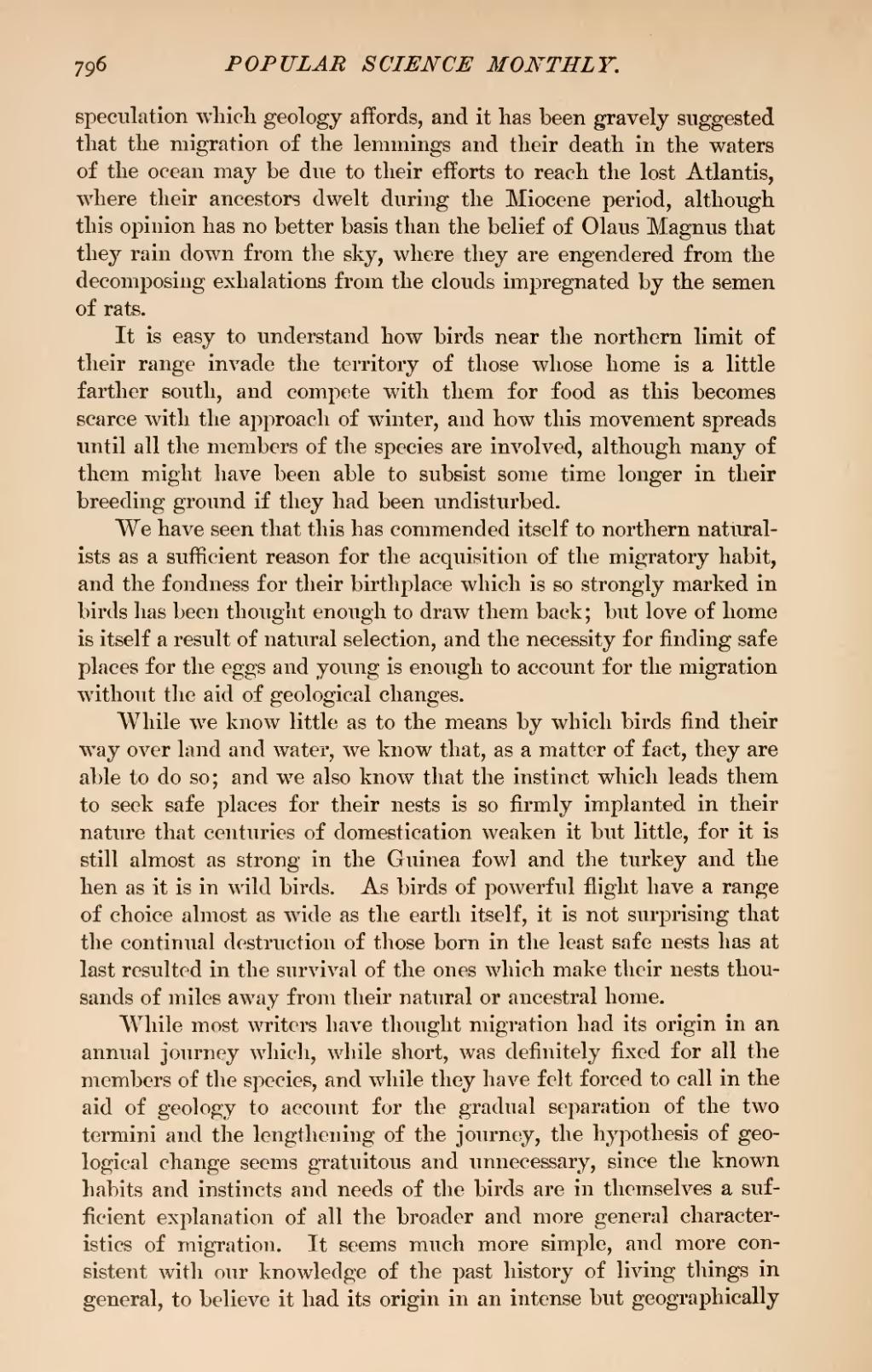speculation which geology affords, and it has been gravely suggested that the migration of the lemmings and their death in the waters of the ocean may be due to their efforts to reach the lost Atlantis, where their ancestors dwelt during the Miocene period, although this opinion has no better basis than the belief of Olaus Magnus that they rain down from the sky, where they are engendered from the decomposing exhalations from the clouds impregnated by the semen of rats.
It is easy to understand how birds near the northern limit of their range invade the territory of those whose home is a little farther south, and compete with them for food as this becomes scarce with the approach of winter, and how this movement spreads until all the members of the species are involved, although many of them might have been able to subsist some time longer in their breeding ground if they had been undisturbed.
We have seen that this has commended itself to northern naturalists as a sufficient reason for the acquisition of the migratory habit, and the fondness for their birthplace which is so strongly marked in birds has been thought enough to draw them back; but love of home is itself a result of natural selection, and the necessity for finding safe places for the eggs and young is enough to account for the migration without the aid of geological changes.
While we know little as to the means by which birds find their way over land and water, we know that, as a matter of fact, they are able to do so; and we also know that the instinct which leads them to seek safe places for their nests is so firmly implanted in their nature that centuries of domestication weaken it but little, for it is still almost as strong in the Guinea fowl and the turkey and the hen as it is in wild birds. As birds of powerful flight have a range of choice almost as wide as the earth itself, it is not surprising that the continual destruction of those born in the least safe nests has at last resulted in the survival of the ones which make their nests thousands of miles away from their natural or ancestral home.
While most writers have thought migration had its origin in an annual journey which, while short, was definitely fixed for all the members of the species, and while they have felt forced to call in the aid of geology to account for the gradual separation of the two termini and the lengthening of the journey, the hypothesis of geological change seems gratuitous and unnecessary, since the known habits and instincts and needs of the birds are in themselves a sufficient explanation of all the broader and more general characteristics of migration. It seems much more simple, and more consistent with our knowledge of the past history of living things in general, to believe it had its origin in an intense but geographically

